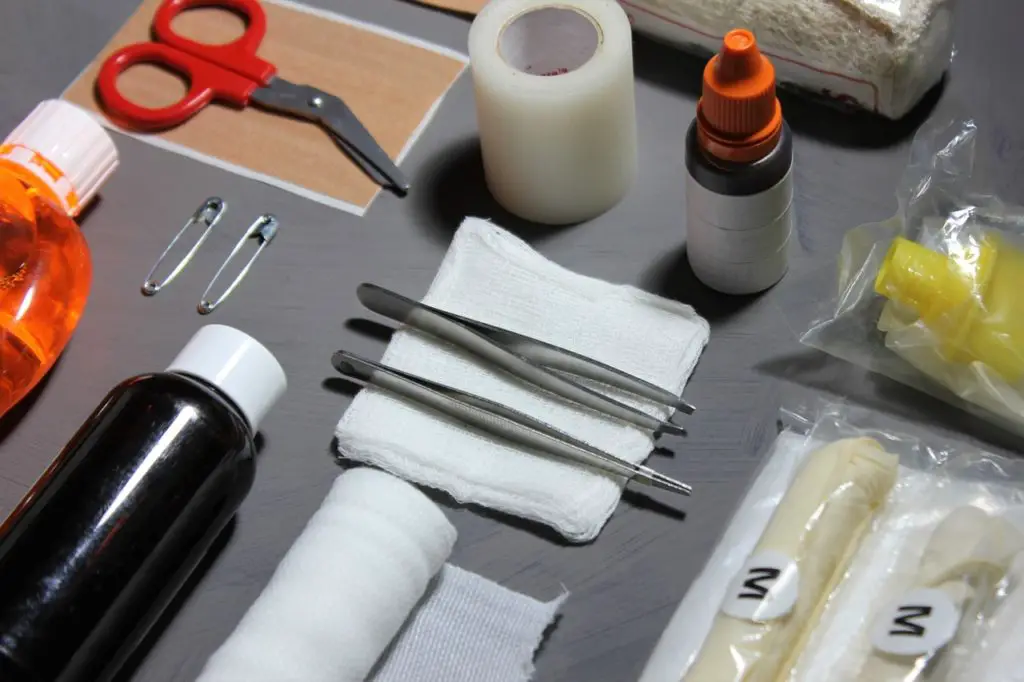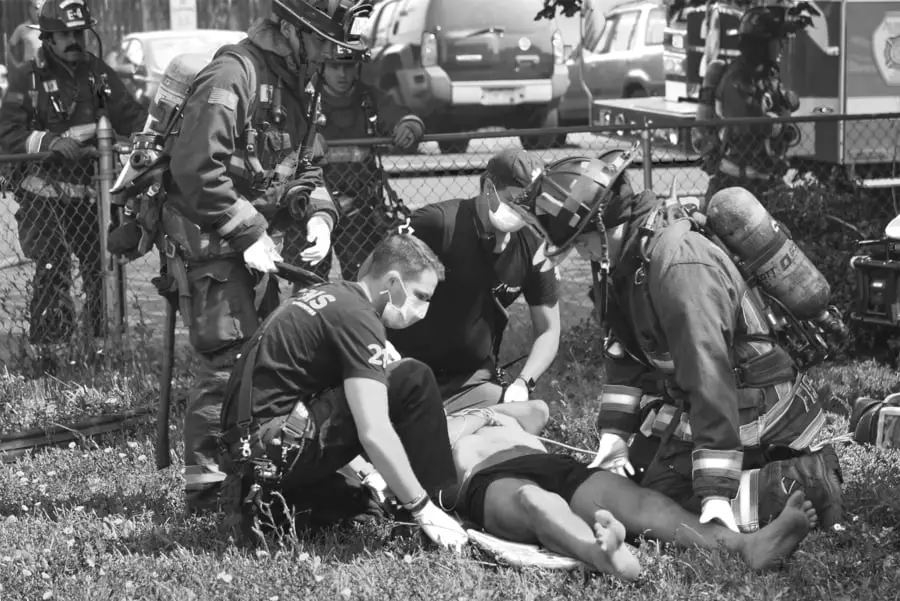PALS (Pediatric Advanced Life Support) is a certification offered by the American Heart Association (AHA). It’s for healthcare providers who work in emergency or critical care settings specifically for the care of infants and children.
The PALS certification course generally covers assessing, managing, and treating cardiac arrest, arrhythmias, respiratory distress, and other medical emergencies in children. The course includes a combination of classroom instruction and hands-on training. Once you’re finished, you must pass a written and practical exam to earn your PALS certification.
Who should get a PALS certificate?
PALS certification is meant for any healthcare provider that works in emergency or critical care settings where they may be required to care for pediatric patients. This includes, but is not limited to:
- Emergency medicine physicians
- Pediatricians
- Family medicine physicians
- Nurses
- Physician assistants
- Paramedics and EMTs
- Respiratory therapists
- Medical students and residents in these fields
It’s typically recommended or required for healthcare providers who work in emergency departments, intensive care units, pediatric emergency departments, or other settings where critically ill or injured children may be treated.
PALS certifications are not meant for civilians or non-medical personnel. A CPR or general first aid class would be more appropriate.
What does a PALS class cover?
The PALS certification course covers a wide range of material related to the assessment, management, and treatment of critically ill or injured pediatric patients. The curriculum is divided into several modules that cover specific topics, such as:
- Cardiac arrest and arrhythmias: This module covers the recognition and treatment of cardiac arrest in infants and children, as well as the management of different types of arrhythmias.
- Respiratory emergencies: This module covers the recognition and management of respiratory distress and failure in pediatric patients, including techniques for airway management and ventilation.
- Shock: This module covers the recognition and management of shock in pediatric patients, including the use of fluid therapy and vasoactive medications.
- Emergency Assessment and Treatment: This module covers the initial assessment and management of critically ill or injured pediatric patients, including the use of advanced monitoring techniques and the administration of emergency medications.
- Team Dynamics and Systems of Care: This module covers the importance of effective communication and teamwork in managing pediatric emergencies, as well as the role of quality improvement in improving patient outcomes.
In addition to classroom instruction, the PALS course also includes hands-on training using simulated pediatric emergencies, allowing participants to practice the skills and techniques they have learned in a controlled environment.
Can you get PALS certified online?
Not completely. Many providers offer an online PALS certification course that can be completed at your own pace. However, it is important to note that while the teaching portion of the course can be completed online, the practical skills assessment and the written examination must be completed in person.
The online PALS certification course typically consists of videos, interactive modules, and quizzes, and it usually takes longer to complete than the traditional classroom course. After completing the online course, participants must pass a practical skills assessment and a written examination, which are typically administered in person at a testing center.
It’s essential to ensure that the online PALS course you choose is accredited by the American Heart Association (AHA) to ensure that the course meets the necessary standards for certification. Once you complete the online PALS course and pass the written and practical exams, you will receive a PALS certification card.
As stated above, many providers offer blended learning options that allow you to complete part of the course online and the other in a classroom setting. This can be an effective way to learn, and it also allows you to get hands-on practice and interact with instructors and other participants.
How long does a PALS course take?
The PALS certification course typically takes between 12 to 16 hours to complete. This can be done in one day or split up over multiple days depending on the provider. After completing the course, participants are required to pass a written and practical examination to earn their PALS certification. The examination usually takes around 2-3 hours to complete.
How much does the course cost?
The cost of a PALS certification course can vary depending on several factors, such as the location of the course, the provider and whether it is taken online or in a traditional classroom setting.
On average, the cost of a PALS certification course ranges from $200 to $400. This usually includes the cost of the course materials, such as a manual and handbook, as well as the cost of the written and practical examination.
However, some providers may offer the course at a lower cost if you are a member of certain professional organizations or if you are a student. Additionally, some employers may cover the cost of the PALS certification course for their employees. It’s worth checking with your employer or professional organizations for discounts or financial assistance.
The cost of PALS recertification is typically lower than the initial certification and it ranges from $100 to $250.
How long does the PALS certification last?
A PALS certificate is valid for two years from the date of issue. After 2 years, healthcare providers must renew their certification by either taking a PALS renewal course.
The American Heart Association (AHA) recommends that healthcare providers renew their PALS certification to ensure they are up-to-date on the latest guidelines and best practices for pediatric advanced life support. The renewal process is designed to help healthcare providers maintain and update their knowledge and skills and to ensure that they can provide high-quality care to pediatric patients in emergency and critical care settings.
It’s important to be aware of the expiration date of the PALS certification and to plan ahead to renew it in a timely manner. Some employers may require their staff to maintain current certification in PALS, so it’s important to check with them before your certification expires.
Where do I renew my PALS certificate?
You can renew your PALS certificate through a variety of providers. The American Heart Association (AHA) offers PALS renewal courses and skills tests through its network of authorized training centers and instructors. You can find an AHA training center near you by visiting the AHA website and searching for training centers by zip code or state.
Additionally, many other organizations and providers also offer PALS certification and renewal courses, such as the National Healthcare Association (NHA), the National Association of Emergency Medical Technicians (NAEMT), and the American Academy of Pediatrics (AAP). You can find a provider by searching online for PALS certification or renewal courses, or by checking with your employer or professional organizations for recommendations.
Online PALS certification and renewal courses are also widely available. These online courses offer flexibility and convenience, but make sure that the online course is accredited by the American Heart Association (AHA) to ensure that the course meets the necessary standards for certification.
Be sure to know which type of class you’re signing up for and you understand what the in person requirements are.
Are PALS and ACLS the same?
No, PALS (Pediatric Advanced Life Support) and ACLS (Advanced Cardiac Life Support) are not the same. Both are advanced life support certifications, but they are designed for different patient populations and settings.
PALS is specifically designed for healthcare providers who work in emergency or critical care settings that involve the care of infants and children. The PALS certification course provides training on advanced cardiovascular life support for pediatric patients, including assessment, management, and treatment of cardiac arrest, arrhythmias, respiratory distress, and other medical emergencies.
ACLS, on the other hand, is designed for healthcare providers who work in emergency or critical care settings that involve the care of adult patients. The ACLS certification course provides training on advanced cardiovascular life support for adult patients, including assessment, management, and treatment of cardiac arrest, arrhythmias, respiratory distress, and other medical emergencies.
Both PALS and ACLS certifications are offered by the American Heart Association (AHA), but they are not interchangeable. Healthcare providers who work with both adult and pediatric patients may choose to get certified in both PALS and ACLS.
You can learn more about ACLS certifications at this website.
What’s the difference between PALS and BLS certifications?
PALS (Pediatric Advanced Life Support) and BLS (Basic Life Support) are both certifications related to life support, but they are designed for different levels of care and patient populations.
BLS certification is intended for healthcare providers who may be the first to provide care in emergency situations such as cardiopulmonary arrest and other life-threatening emergencies. The BLS course covers the basic skills needed to maintain the airway, provide rescue breathing, and use an automated external defibrillator (AED). The BLS certification is usually required for healthcare providers who work in emergency departments, intensive care units, and other settings where critically ill or injured patients may be treated.
PALS, on the other hand, is intended for healthcare providers who work in emergency or critical care settings that involve the care of pediatric patients. PALS certification is an advanced certification that builds on the knowledge and skills covered in BLS. It provides training on advanced cardiovascular life support for pediatric patients, including assessment, management, and treatment of cardiac arrest, arrhythmias, respiratory distress, and other medical emergencies.
You can check out our other article about BLS certifications here.




